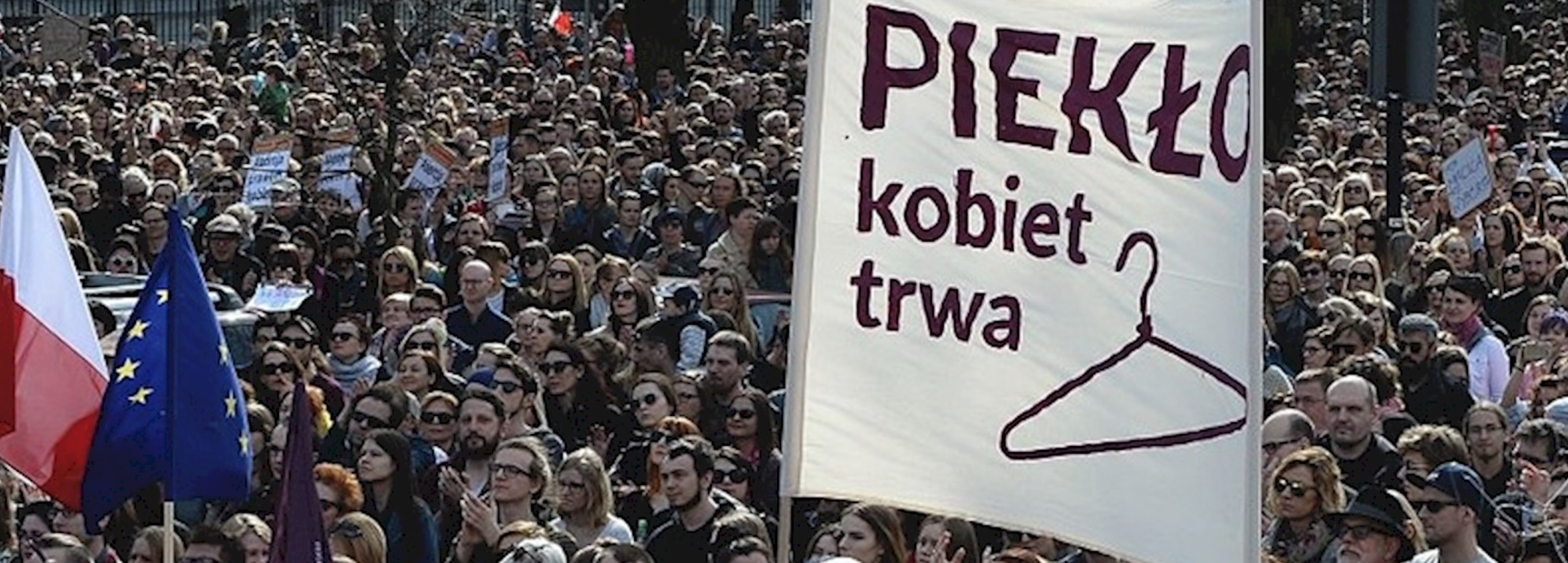(via Amnesty)
A dangerous backward step for women and girls in Poland
By Anna Błuś, 19 September 2016, 15:28 UTC
Pregnant at 11, a girl raped by her own father, will have no choice but to give birth. Equally, a woman at high risk of dying in childbirth or of carrying a dead baby, will not be able to seek a termination. This will be the impact of new legislation due to be debated on in the Polish parliament later this week which, if passed, would usher in an almost complete ban on abortion.
On Sunday in Warsaw, London and other cities, protesters will gather for a global day of action opposing the amendment to Poland’s law. The law seeks to not only criminalize women and girls who have sought or had an abortion, but also increase the maximum jail term for anyone who assists or encourages them have an abortion from three to five years.
Poland’s abortion law is already one of the most restrictive in Europe, with abortion only permitted in cases of rape or incest, when the fetus is diagnosed with severe and irreversible disability or an incurable illness threatening its life, or when the woman’s life or health is in danger. The proposed legislation would impose a prohibition in all circumstances other than in cases where medical health professionals deem it necessary to save a woman’s life. This will inevitably place women’s health at risk, and put doctors in impossible situations. With no clear guidelines about how close to death a woman or a girl must be for performing an abortion for medical reasons to be lawful, the onus will be on doctors to delay for as long as possible.
“If I have a 32-week pregnant patient with pre-eclampsia, I have to wait for her and her child to start dying before I can take action,” explained Professor Romuald Dębski during a debate in Parliament last April. “If there is an ectopic pregnancy and bleeding, I can perform a termination. But if there is no bleeding – no immediate risk to life – I have to wait until she starts dying.”
Under the proposed law, inadvertently causing the death of the ‘conceived child’ carries a prison term of three years maximum. This is likely to have a chilling effect on medical professionals, undermining their ability to provide adequate medical care, information and advice to their patients thus putting women’s and girls’ health and lives at risk.
In recent years Poland’s abortion laws have been challenged in the European Court of Human Rights (ECHR). The court found that in three cases – including in the case of a 14 year-old rape victim – unacceptable obstacles to women’s and girls’ access to safe and legal abortion breached Poland’s obligations under the European Convention on Human Rights.
Official figures suggest that around 1,000 legal abortions are performed in Poland each year. However, the available data does not account for backstreet abortions and terminations abroad. Women’s rights organizations estimate that the true figure may be as high as 150,000.
“Currently doctors are scared to perform legal abortions,” says Krystyna Kacpura, Director of Federation for Women and Family Planning. “They are scared of being stigmatised, of putting their hospitals at risk of repercussions. They are also scared of criminalisation.”
In the light of the ECHR rulings it is evident that current practices in Poland need reforming and any further restrictions would further violate a wide range of international and regional human rights obligations. Such restrictions would also constitute a retrogressive measure in contravention to international law.
Currently doctors are scared to perform legal abortions. They are scared of being stigmatised and of putting their hospitals at risk.
Hundreds of thousands of women have joined the fight for their rights, largely thanks to monumental work of organisations such as Krystyna’s. At demonstrations that have spilled out across Poland’s streets in recent months protesters held up coat hangers as a reminder of the primitive and dangerous methods of self-induced abortion women would be compelled to resort to, especially those who cannot afford to travel abroad for a termination.
This is not scaremongering. One only has to look at other countries where similarly draconian laws exist to see their negative impact. Amnesty International’s research in Ireland, El Salvador, Nicaragua, and Paraguay has shown that in all these countries women and girls pay a high price for restrictions on safe and legal abortion. They pay with their health, their well-being and even with their lives.
Parliament will start to debate the Bill on Wednesday and, if passed, the new legislation could be rushed through in a matter of days. If this happens it would result in a breach of international human rights treaties and conventions, leaving women with a stark choice: terminating a pregnancy and going to jail or continuing with the pregnancy and risking their lives.
It would also run counter to a hard-fought principle. Namely, that decisions about women’s bodies and health should be made by women themselves, in consultation with their doctors, and not by politicians.
Anna Błuś, Researcher, Central and Eastern Europe
This article was first published by Time Magazine

